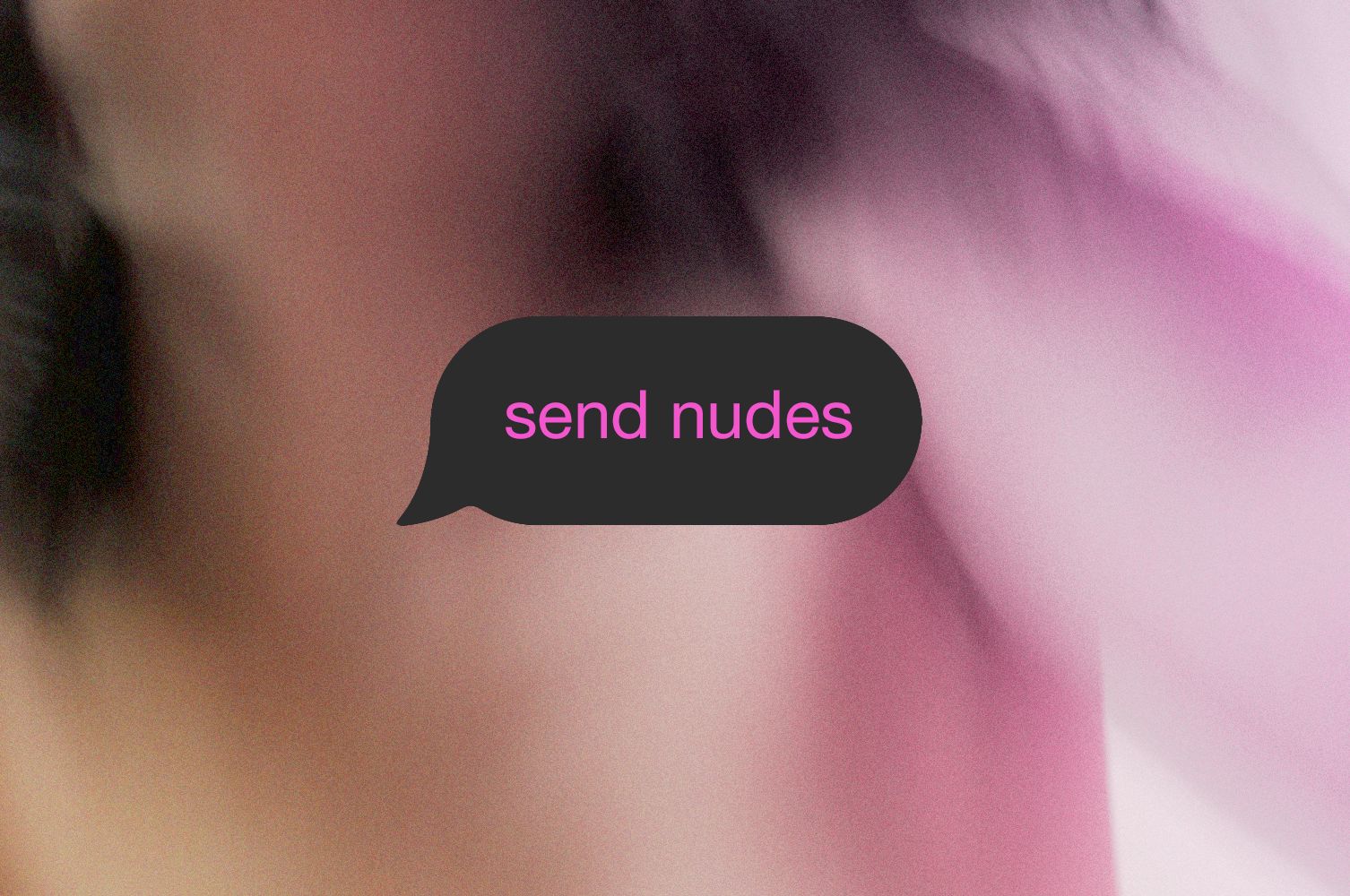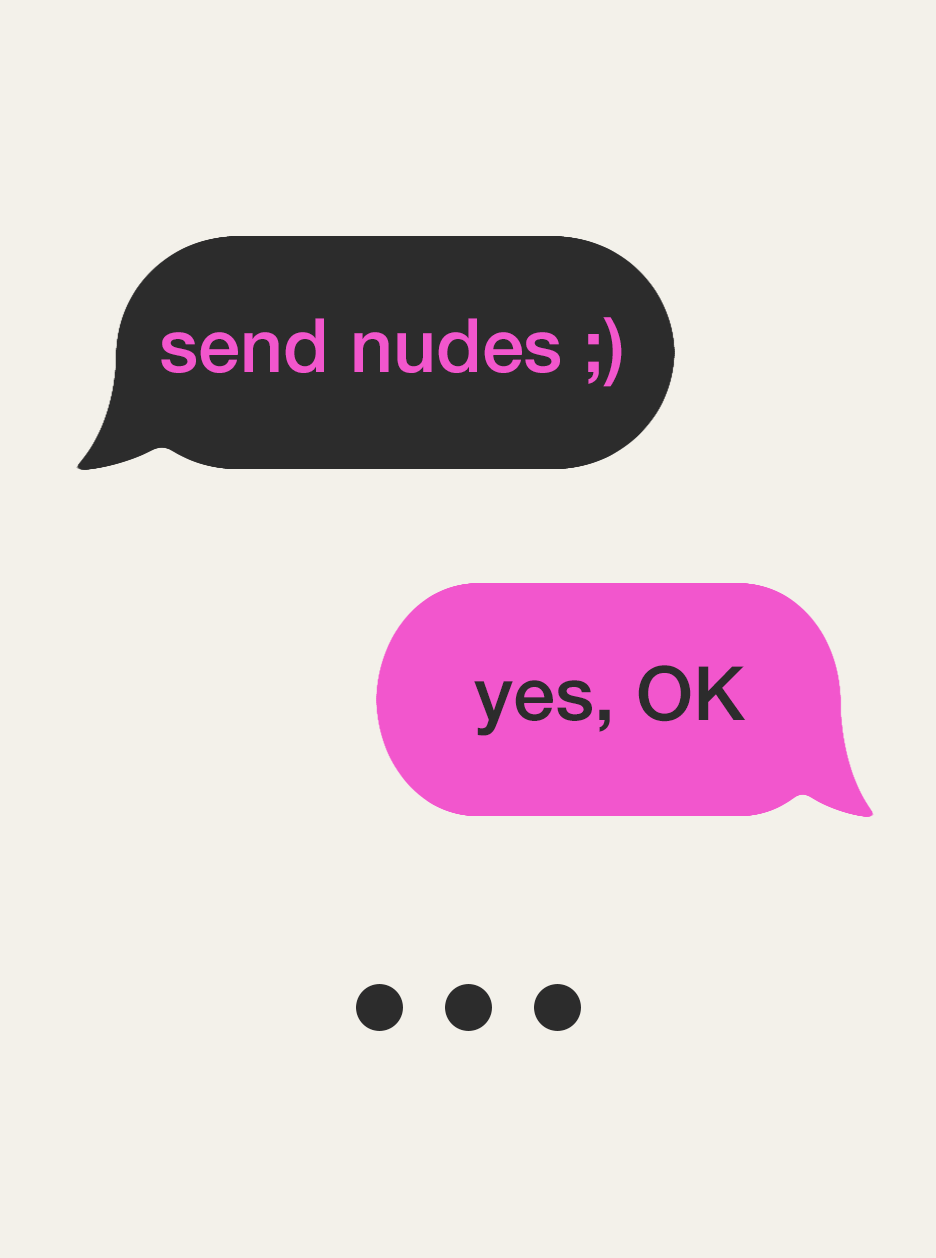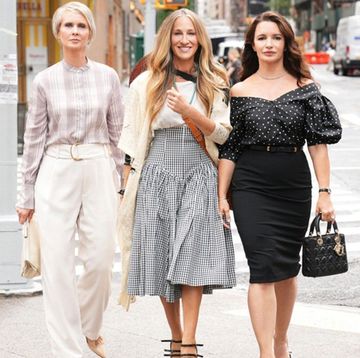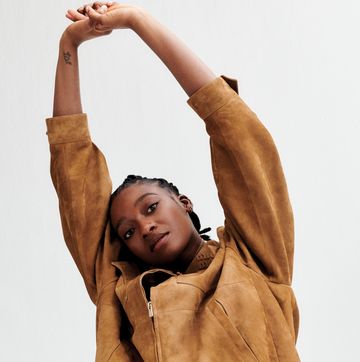‘Send me a picture of you,’ an incoming WhatsApp flashes at the top of my screen.
I am lying in bed, half-heartedly texting a date who I'm quickly discovering is keen on me sending nudes. We’ve slept together a few times and now, some nights, he wants the highlights to browse in between. Tits (with bra and then without), knickers on, then off. Occasionally, he reciprocates with a snap of him lying back on his bed, completely relaxed, dick in hand. I am mildly turned on, a little bored and annoyed that I have to make so much more effort than he does.
I had never imagined myself sending nudes – I couldn't conceive of anyone wanting to see them, to be honest. But for a short time after leaving a long term relationship in my late twenties, I spent some evenings curiously inspecting late night pictures of my body – fascinated by the angles I hadn’t seen, analysing the new discovery that one of my nipples is very slightly higher than the other. While I’d never been ashamed of my body as such (aside from being six foot tall, it’s decidedly ‘average’), I’d also never really seen it trying to be sexual. It surprised me. So when WhatsApp messages like ‘send nudes ;)’ flashed up on my phone late at night, sometimes I would say: 'yes, OK.'
It is nothing radical to admit that you have sent nude photos, I know. Rather, it’s par for the course. It’s so commonplace, in fact, that dick pics feel like an outdated trope of dating – no longer a hot topic; just something that happens.
And nudes can be fun and funny, they can keep long distance relationships from going stale and they can also work simply as they are intended: to be sexy. It’s never not hot to think that someone you think is hot also thinks you are really hot.
Especially among gay men, but also among a younger app-using crowd, nudes are a staple of dating culture. Some also say that sending nudes can be a 'relatively low risk way to weed out potential sexual partners' or introduce someone to your body before sex, particularly if prejudice or past experience has rendered the experience of unveiling your body uncomfortable.
Last month, nudes became a tool for aiding victims of an emergency – an improbable curveball. As bushfires engulfed Australia, LA-based Instagram model Kaylen Ward used nudes to incentivise her followers to make charitable donations to firefighting funds, collaborating with increasingly popular soft porn app Only Fans. Every receipt for a donation that she received, she sent a snap in return. She estimates that the idea raised more than £250,000.
Yet, despite all this, it might still be the case that we shouldn't be sending nude photos at all.
While pictures exchanged between two consenting, respectful adults is no-one’s business and can be a positive way to be sexual on our own terms, the reality is that the surrounding culture still seeks to weaponise a woman’s body against her, fosters abuse and fails to prosecute offences time and time again. And that makes it a risk too great.
It is a crime to upload, send or even show nude pictures of someone to another person without the consent of the person in the picture, yet it happens every single day and protections against abuse are woefully weak. Revenge porn cases have risen exponentially in the last five years, but in Scotland, for example, less than half of reported cases were even passed on to prosecutors.
In the UK, cyberflashing – sending nude pictures to strangers on public transport – has become commonplace, yet in England there are no legal repercussions for the offender or protections for the victims.
‘There's a risk that we are getting towards a culture where sharing images without consent is being normalised,’ says Clare McGlynn, a professor of law at Durham University, who specialises in the legal regulation of pornography and image-based sex abuse. ‘And it’s not taken sufficiently seriously.’
It’s a frustrating predicament – on the one hand, ownership and exploration of our sexuality and bodies, along with the building of an open-minded sexual culture, is to be encouraged. Especially when it comes to diverting women’s sexual power through a female lens, rather than through the male gaze.
‘The harms that women experience when their sexual images are taken or shared without their consent, is a result of the double standards of our society,’ Prof. McGlynn continues. We're encouraged to embolden ourselves, but then ‘women who express their sexuality are so often subject to taunts, abuse and harassment.' It's a catch-22.
'If we were in a society that treated women’s sexuality and sexual expression with respect, says McGlynn, 'and treated women and men equally, then much of the harm of having sexual images shared without consent would be reduced.’
This duality - of expecting women to be confidently sexual, but reducing them to embarrassing slurs and the proliferation of their images without consent when they are - means that another generation is currently growing up with mixed messaging about femininity and sex.
While it’s illegal and dangerous for minors to send nudes (it constitutes the distribution of child pornography), they are following our example. 27 per cent of teens are receiving sexts, the Journal of the American Medical Association Pediatrics found last year, and nearly 15 per cent are sending them.
My 15-year-old twin sisters are already well-acquainted with the connotations of sending nudes. ‘Lots of couples at our school do it,’ one of them tells me. ‘We’ve had the police in at school; they came to tell us that this was actually spreading porn and people could be arrested,’ she says. Do the people at her school worry about getting arrested? ‘I don’t think they do, no. I think they believe that by sending them they’ll keep their crushes interested. That’s normal in some circles.’
‘I was once asked if I sent nudes,’ our other sister says. Thankfully, she 'soon blocked him.’
Coupled with outdated sex education that lacks nuance, depth and, critically, positive affirmations of sexuality, there’s a danger that the next generation are set to grow up in the same toxic cycle that we did. But what can actually be done?
‘There are laws criminalising some forms of image-based sexual abuse, but they are not sufficiently comprehensive,’ Prof. McGlynn explains. ‘They only cover people sharing images with certain motives and intentions.
‘But even if we had a better criminal law, that would still not be sufficient. The law is only the first step. We must have more effective education in schools – that means the time and expertise being given to discussing online harms, digital privacy.
‘There must also be a national debate which does not blame those who are victimised. This is the problem with the language of “revenge porn” as it suggests that the victim has done something wrong, that may justify “revenge”.
I stopped sending nudes. In a wave of anxiety while scrolling back through my phone’s camera roll after an intense dating period, I was struck by a fear of not knowing where my tits had travelled to. I didn’t want to stop exploring sex, but initial thrill and adrenaline had morphed into profound worry about pictures of me in hands that I now felt were wrong to hold them. Because that's the thing, while you might at one time consent to someone having a nude photo of you, it's hard to rescind that consent once they have them.
Despite personally still trusting the people I’d sent them to, the control I’d harnessed while taking them had now been completely lost. I began to fear, irrationally, that I might have done something to warrant revenge and that they'd be used against me.
Sending nudes is, of course, intrinsically personal. But there is a lot more work to be done to make it safe. We need to close the gender gap that teaches us dick pics are par for the course, but that a woman's nudes are a weapon against her and we need far better legal protections for occasions of misuse.
Until then, I might take a few tit pics every now and again. But I won't be sending them anywhere.














